Include these in your diet and switch to a healthy lifestyle to keep kidney issues at bay.
Thank you for reading this post, don't forget to subscribe!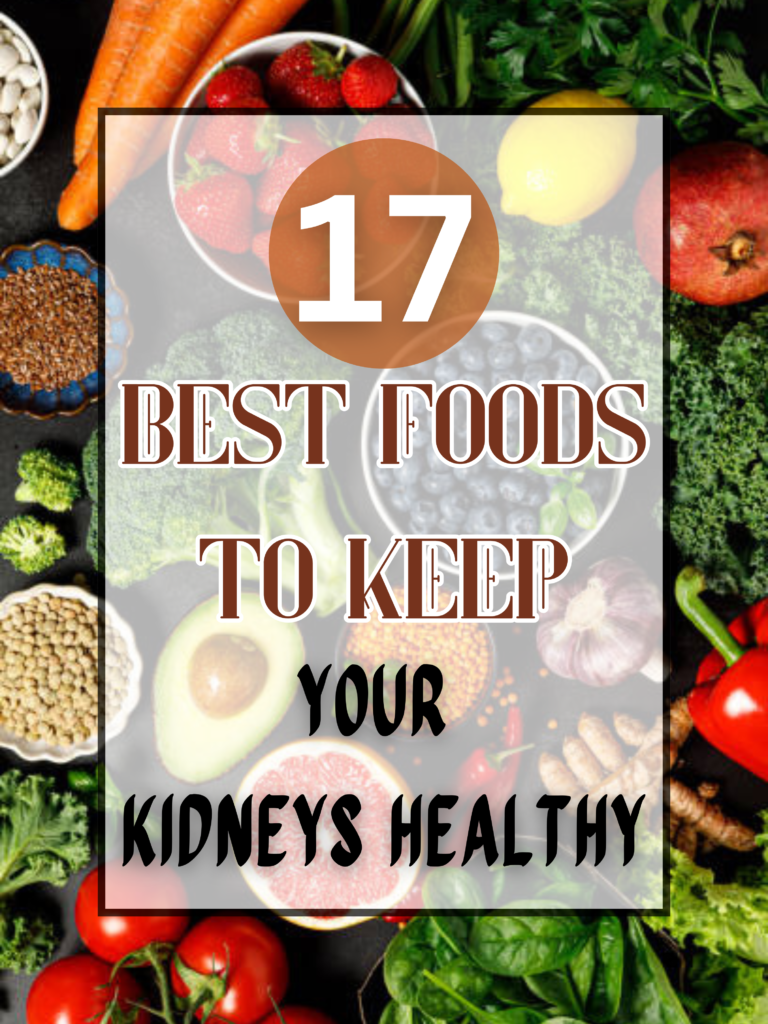
The kidneys perform a crucial role in our bodies by removing toxins a excess fluids. Also,they control blood pressure and stimulate RBC prodction. Therefore incorporating foods for a healtthy kidney in your diet can promote kidney health and protect the organs from the negative effects of an unhealthy lifestyle.
As per the national kidney foundation, millions of people will be effected by kidney disease. Hense, it’s time to think about these vital organs and start protecting them. So, how can we protect the kidneys! What foods help repair kidneys! We can help you with these questions. Learn more about the foods that positively effect kidneys and start including them in your diet today.
17 Foods For Healthy Kidneys
1. Water
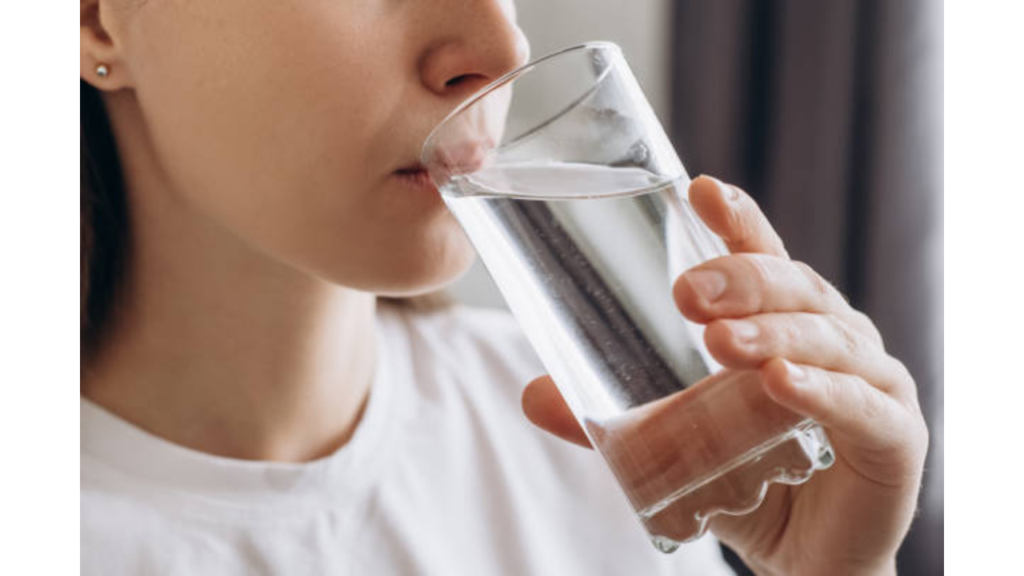
Cal – 0 Protein – 0 g Fat – 0 g Carbs – 0 g
Water is a miracle potion. It has the power to bring you back to health. But do not go overboard. The recommended amount of water to be consumed every day is 8 glasses for women and 13 for men. It is best to consult your doctor to understand how many glasses of water you should drink per day depending on the condition of your kidneys and daily activity.
2. Cabbage
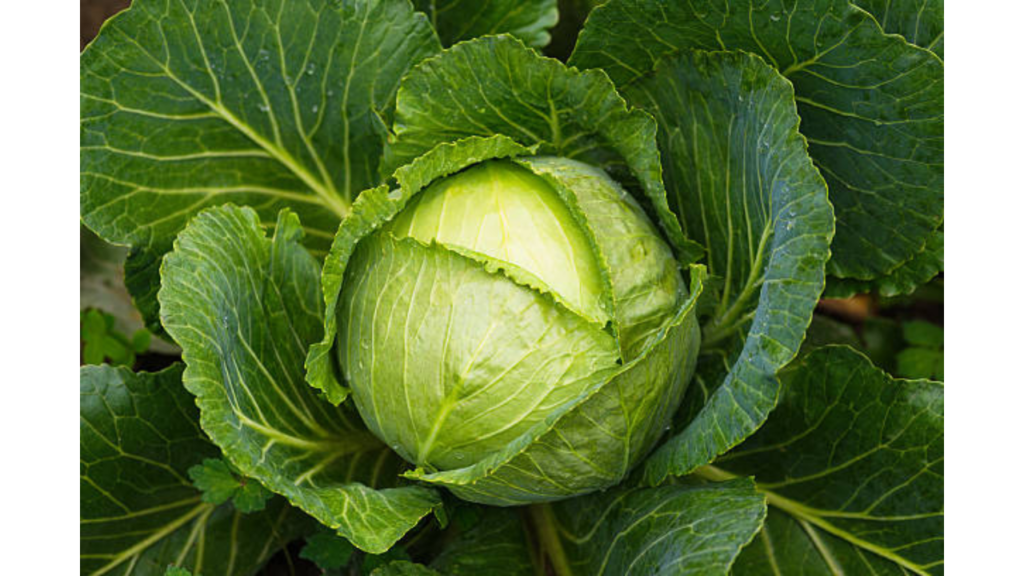
Cal – 22 Protein – 1 g Fat – 0 g Carbs – 5g
Cabbage is a leafy vegetable that is packed with phytochemicalsi. The antioxidants present in it help scavenge the harmful free redicals in the body, thereby reducing the risk of cancer, cardiovascular desease, and renal dysfunction. Cabbage is a rich source of vitamins and minerals, but not the ones that are protentialy harmful to the kidneys.
3. Onion
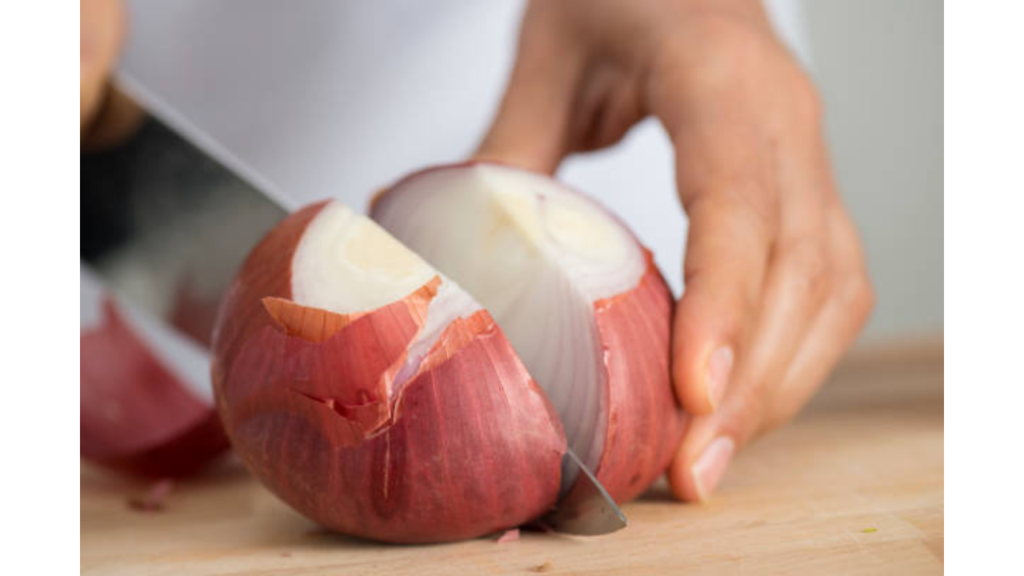
Cal – 64 Protein – 2 g Fat – 0 g Carbs – 15 g
Onion breath might be a turn-off, but onions help keep your kidneys properly founctioning. They contain flavonoids and quercetin that prevent the deposition of fatty material in the blood vessels. Quercetin is an antioxidant that can reduce the risk of heart disease and cancer. Onions are kidney-friendly and low in potassium. They also contain chromium that hlps metabolize fats, proteins, and carbohydrates.
4. Asparagus
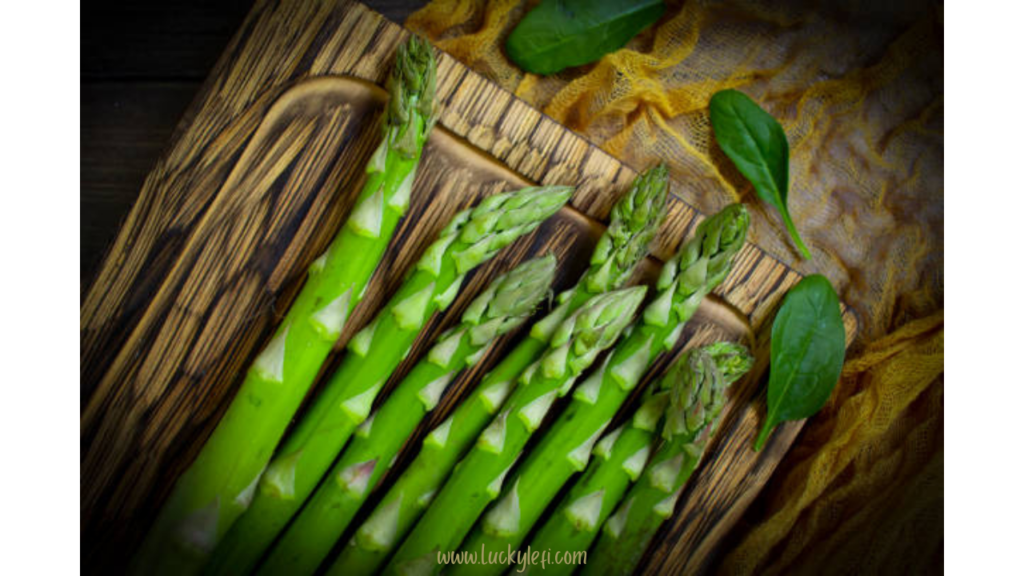
Cal – 27 Protein – 3 g Fat – 0 g Carbs – 5 g
Asparagus is low-cal and loaded with vitamins A, K and C, in hypertensive rats, asparagus had shown to preserve renal function. But it is a little on the highr side in minerals like potassium, calsium and phosphorus. So, you must talk to your doctor before consuming asparagus. You can grill it or blanch with other kidney-friendly foods for dinner or lunch.
5. Garlic
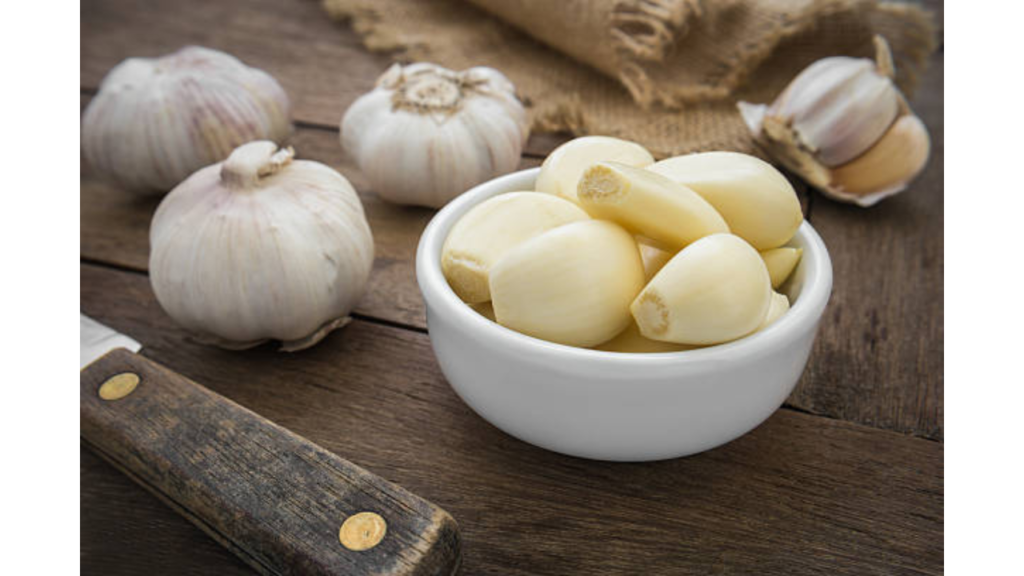
Cal – 203 Protein – 9 g Fat – 1 g Carbs 45 g
Like onions, garlic has a pungent smell. However, it is one of the most potent herbal medicines. Plus, it helps enhance the flavor of foods to which it is added. Researchers have found significant evidence that garlic juice, along with metformin ( a drug prescribed for diabetes type 2 patients ) Showed renoprotectivei effects.
6. Cauliflower
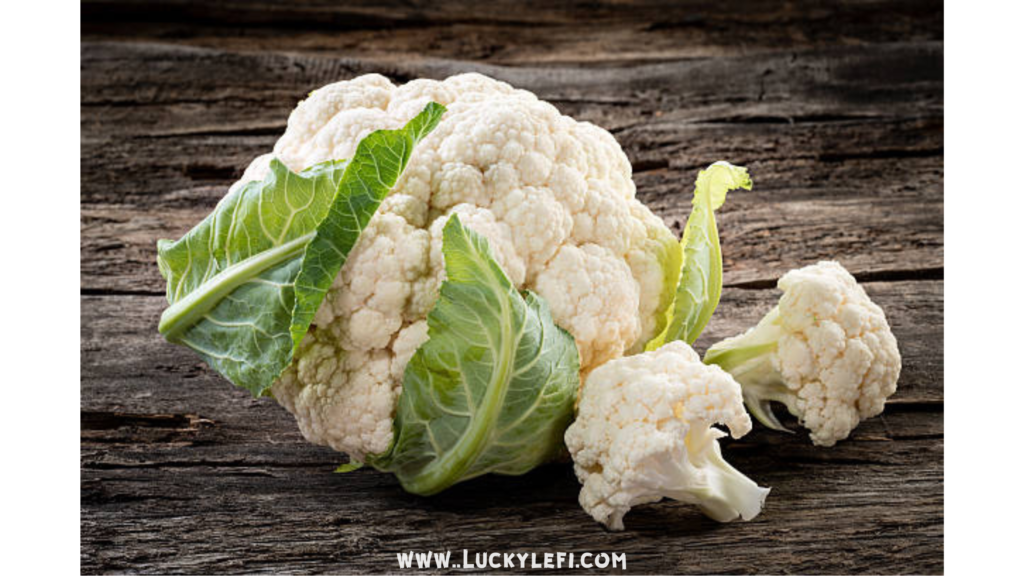
Cal – 25 Protein – 2 g Fat – 0 g Carbs – 5 g
Cauliflower is a kidney-friendly cruciferousi superfood that is a rich source of vitamin C, folate, and fiber. It also contains compounds that are important for the liver and neutralize toxic substances in the body. Cauliflower can be consumed boiled, blanched, raw, as a dip, or in salads.
7. Apple
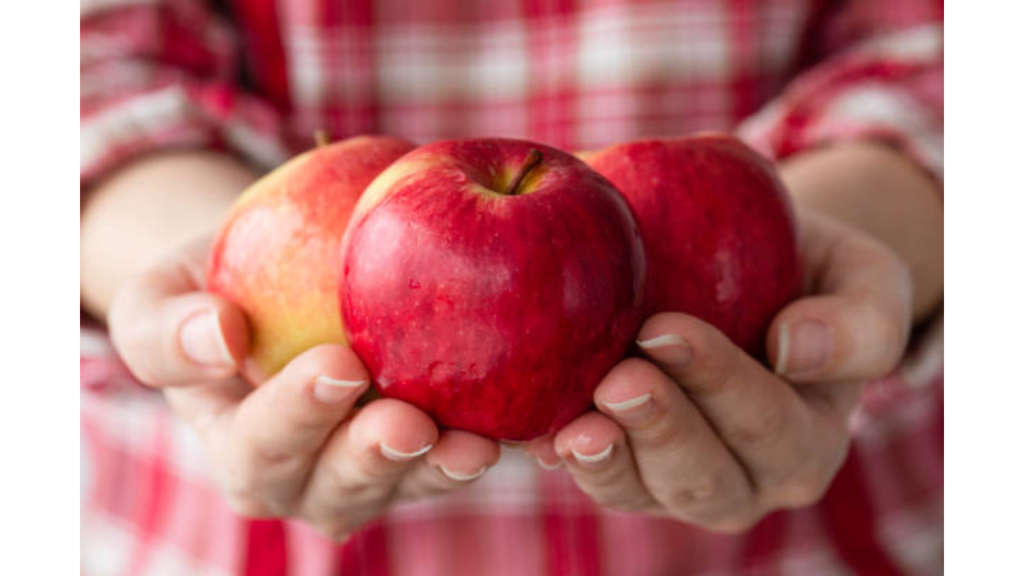
Cal – 65 Protein – 0 g Fat – 0 g Carbs – 17 g
Apple is a rich source of vitamins, minerals, and fiber. It has anti-inflammatory and antioxidant properties that help reduce bad cholestrol, heart deasses, cancer and diabetes. Since diabetes is closely related to renal failure, consuming apples can help protect you from kidney problems. Apples can be eaten raw or cooked. You can also make a tasty beverage.
8. Cranberries
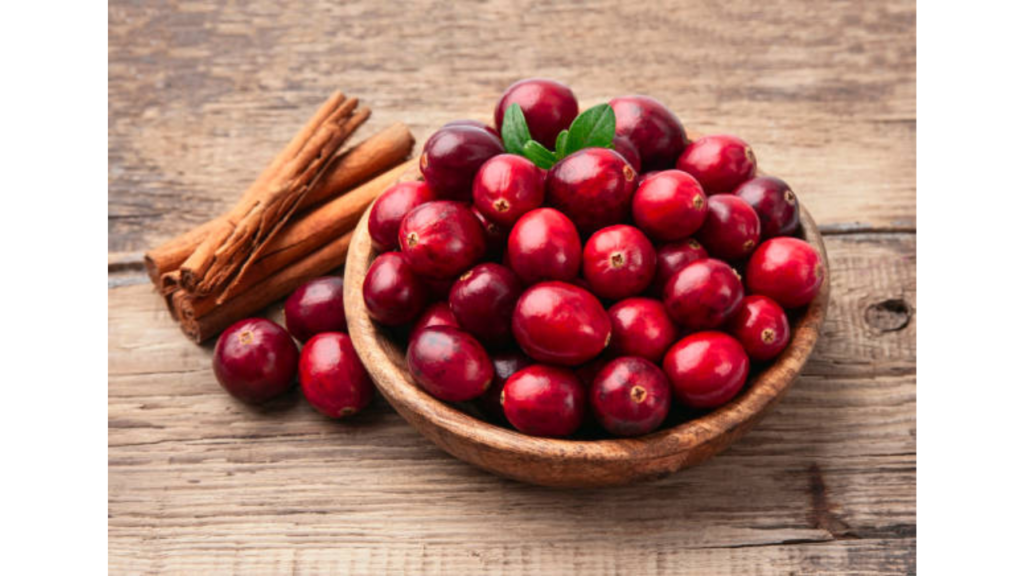
Cal – 51 Protein – 0 g Fat – 10 g Carbs – 0 g
Cranberry juice is a popular home remedy for urinary tract infaction (UTI). Due to its antioxidant properties, it is a great natural antibiotic that prevents any bacterial growth in the digestive tract or the kidneys. A research study showed that cranberries had the potential or treat calcium oxalate kidney stone. Always consume fresh cranberries or use fresh ones to make juice. However, do not drink too much of it to prevent overworking the kidneys.
9. Pumpkin Seeds
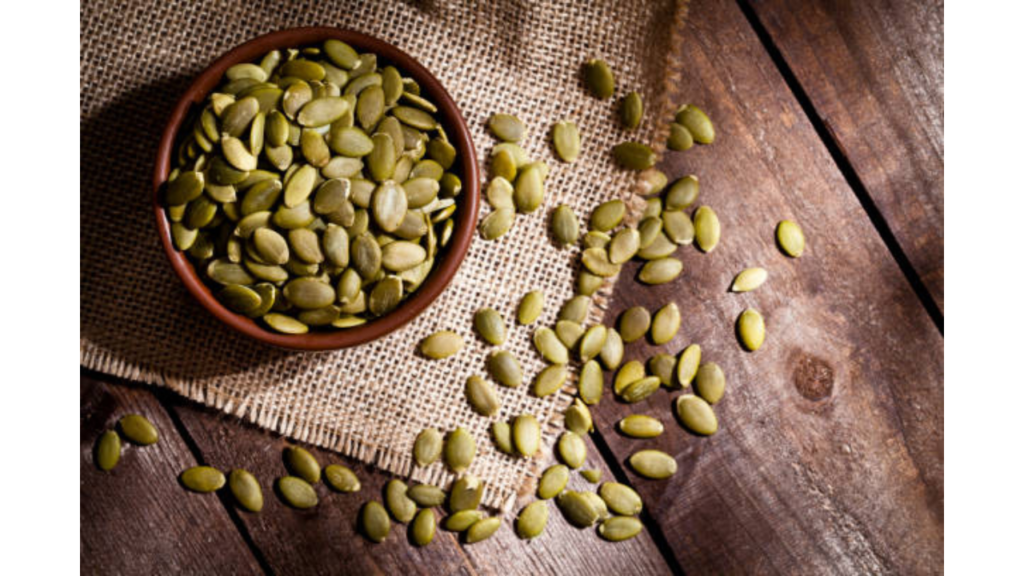
Cal – 285 Protein – 12 g Fat – 12 g Carbs – 34 g
These bright green seeds are more than just pretty. Loaded with dietary fiber, vitamin E, zinc, protein, copper, and iron, they have been scientifically proven to lower the risk of bladder stones. Since the seeds are also high in phosphorus and might increase the potassium levels in your body. talk to your doctor before consuming them if you have renal issues.
10. Lemon Juice
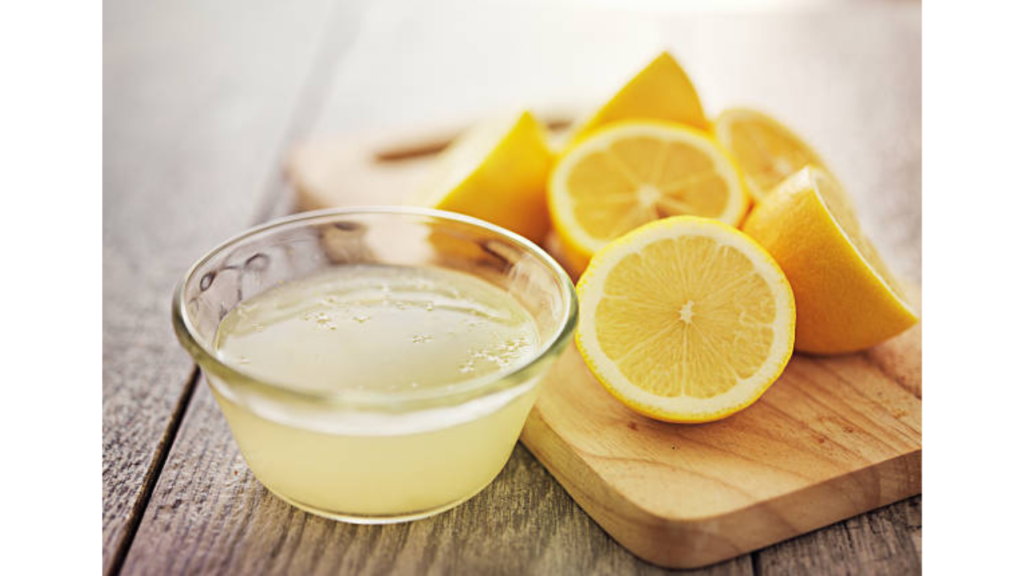
Cal – 61 Protein – 1 g Fat – 0 g Carbs – 21 g
Lemon juice has the potential to help treat kidney problems. The vitamin C and citric acid in it help maintain the internal pH, promoting better health and stronger immunity. Drink lemon juice in the morning or before lunch. Make sure to dilute it in a cup of water and refrain from adding refined sugar.
11. Blueberries
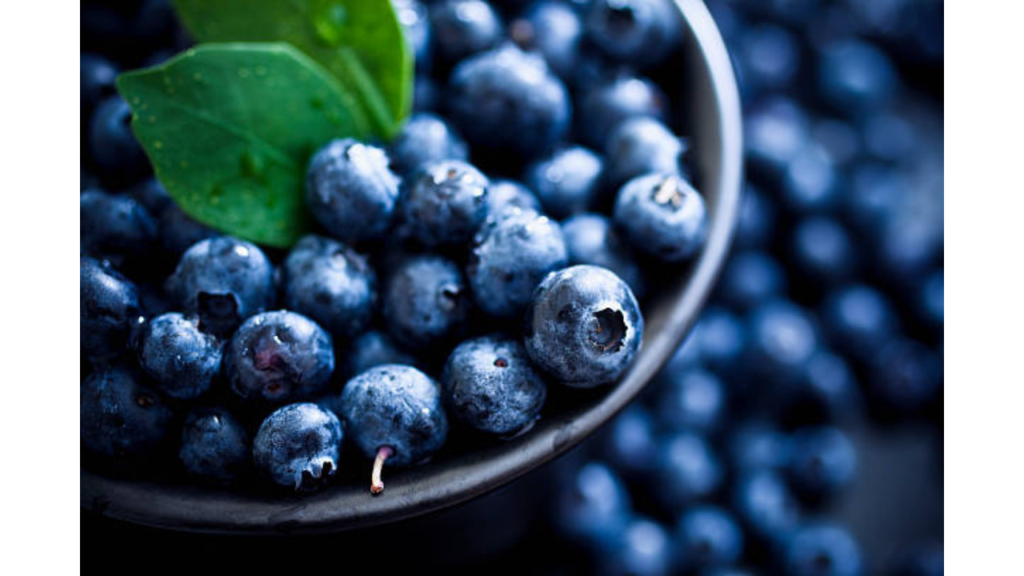
Cal – 84 Protein – 1 g Fat – 0 g Carbs – 21 g
Blueberries are packed with antioxidants that help cleanse the body of toxins. They are rich in nutrients that can help reduce inflammation. Researchers found that blueberries could help inhibit the signalling pathways that lead to renal failure in animals with metabolic syndrome. So, include them in your breakfast to lose weight and protect your kidneys.
12. Strawberries
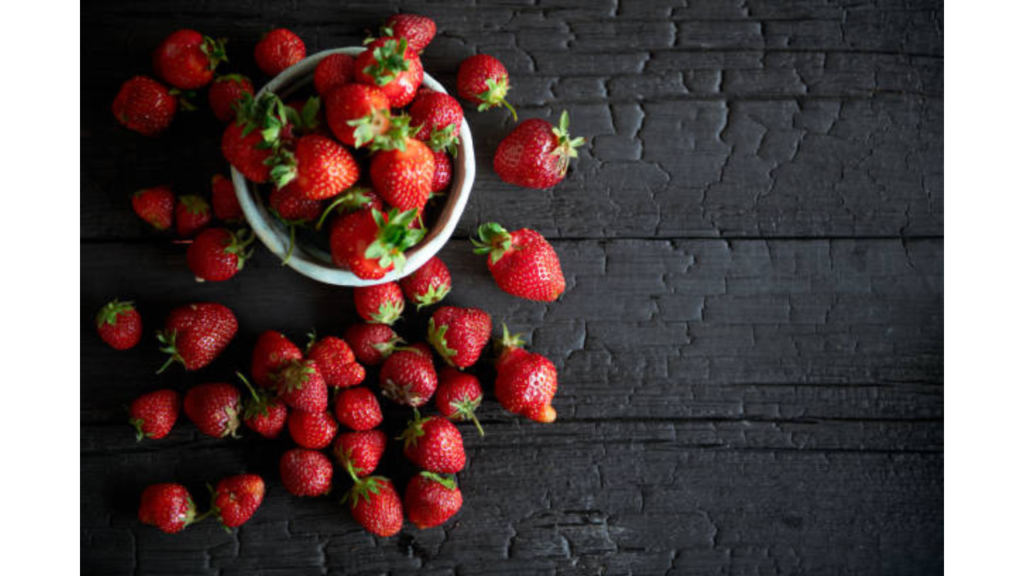
Cal – 49 Protein – 1 g Fat – 0 g Carbs – 12 g
Strawberries are a rich source of antioxidants, vitamin C, manganese, and fiber. They have anti-inflammatory and anticancer properties and are a good choice for a healthy heart and kidneys. However, their contribution to better kidney health is contested. So, talk to your doctor before consuming them.
13. Cherries
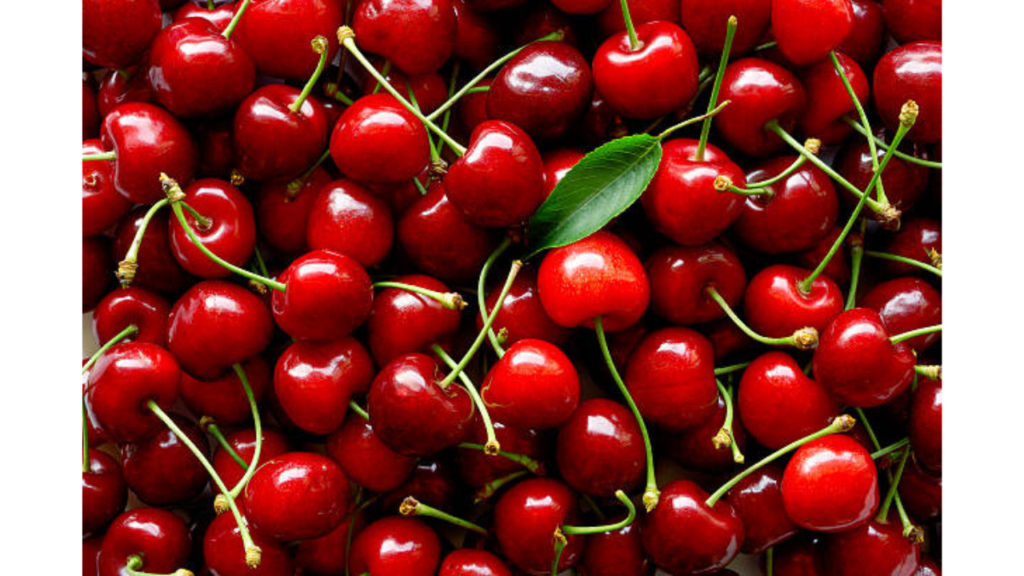
Cal – 51 Protein – 1 g Fat – 0.3 g Carbs – 13 g
Cherries are a rich source of antioxidants and phytochemicals that help protect your heart and kidneys. Consuming them daily helps in reducing inflammation in the body, especially in the kidneys.
14. Pineapple
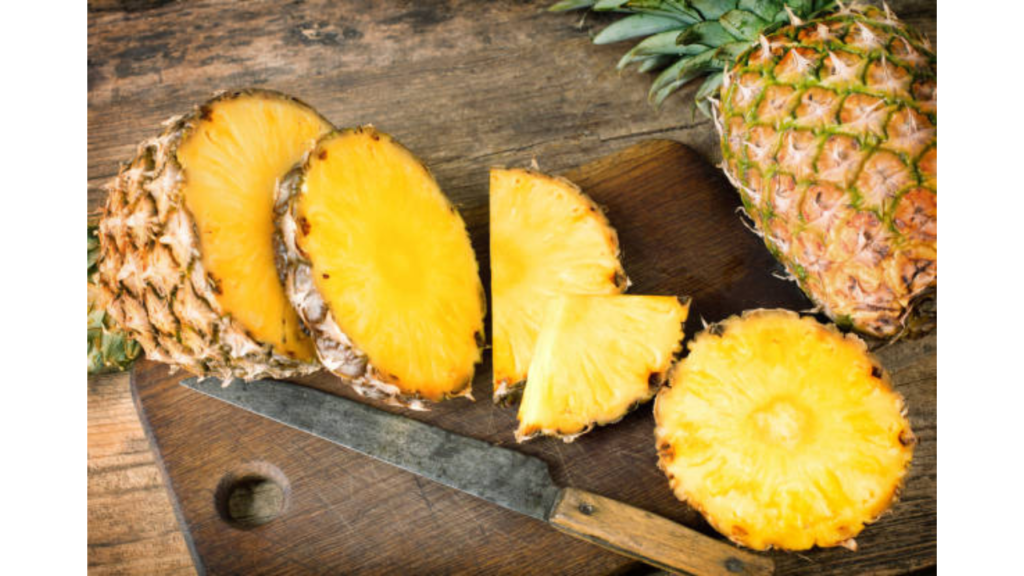
Cal – 50 Protein – 0.5 g Fat – 0.12 g Carbs – 13.1 g
Animal studies suggest that the peptides and antioxidants in pineapple may decrease creatinine levels and improve kidney function. Forther, its low potassium content may be beneficial to individuals with chronic kidney disease to aid in flushing out excess potassium.
15. Radish
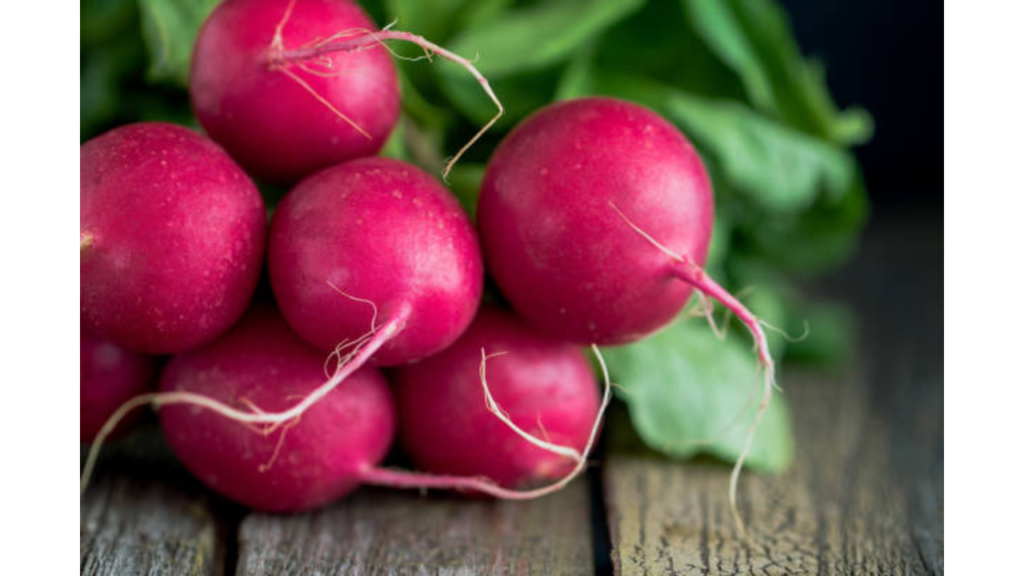
Cal – 16 Protein – 0.68 g Fat – 0.1 g Carbs – 3.4 g
The low potassium content in radish makes it good for your kidney health. You can consume boiled radish as compared to raw radish as it contains less potassium to manage your kidney issues.
16. Shiitake Mushrooms
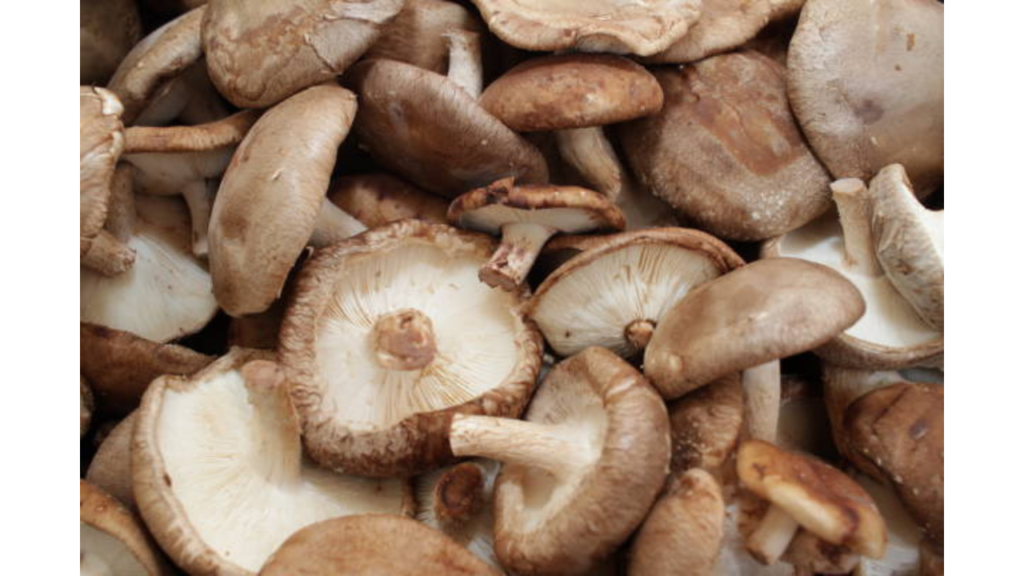
Cal – 34 Protein – 2.24 g Fat – 0.49 g Carbs – 6.79 g
The antioxidant and anti-inflammtory properties in shiitake mushrooms may help reduce inflamation and creatinine and uric acid levels. You can consult a dietitian to help you understand the amount of shiitake mushrooms you can consume daily.
Foods To Avoid
- Nuts and Seeds
- Peanut Butter
- Lentils
- Dried Beans
- Bananas
- Spinach
- Red Meat
- High Sodium Foods
- Artificial Sweeteners
- Caffiene
- Chicken with Skin
- Tomato
- Breakfast Cereal
- Bread and Pasta made of whole grains
- Orange
- Alcohol
Consuming a few foods for a healthy kidneyinsures their optimal functioning and minimizes the negative effects of an unhealthy lifestyle. Such foods include cabbage, red bell peppers, onions, garlic, cauliflower, apples, Strawberries, pumpkin seeds. Along with these foods, following a healthy diet by consuming lean protein, legumes and low-fat dairy in moderate amounts, maintaining a healthy lifestyle, cutting down on alcohol and smoking, and exercising regularly can help promote kidney health.
Want to discover more delicious, convenient clean-eating recipes. Follow our and connect with us too! Check out our pinterest boards, like healthy salads. Be sure to subscribe to our luckylefi for even more recipes, workouts ect.